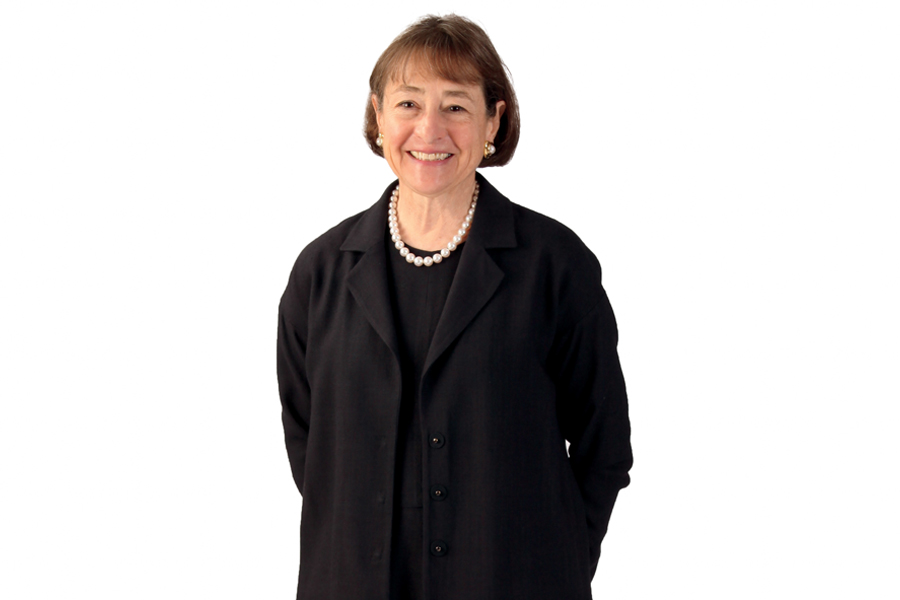
In 1986, after Overseer Nancy Paduano’s young son had successfully recovered from brain surgery at NewYork-Presbyterian/Weill Cornell Medical Center, the question that she kept asking herself was, “How do you repay an institution that has saved your child’s life?” Since that time, Nancy has given back exponentially to Weill Cornell Medicine – through her leadership as a member of the Board of Overseers, as Vice Chair of the NewYork Weill Cornell Council, and as an advisor for the Children’s Health Council; through her enthusiasm and commitment to promoting pediatric healthcare; and through her and her husband Dan’s philanthropy. Over the years, Nancy and Dan have generously given to Weill Cornell Medicine, helping to establish the Nancy C. Paduano Professor of Pediatrics and supporting a number of different pediatric research projects. Most recently, the Paduanos made a $1 million gift to promote the work of Dr. Stefan Worgall, Distinguished Professor of Pediatric Pulmonology, whose research on viral lung infections on the lung microbiome aims to address pediatric asthma and help develop life-altering treatments.
Recently, Larry Schafer, Vice Provost for External Affairs, sat down with Nancy to talk about her history with Weill Cornell Medicine, her inspiration for giving and her hopes for the future of pediatric healthcare.
LS: You have been involved with Weill Cornell Medicine for many years now – can you tell me a little bit about your first experiences here? How did that shape your interest and involvement in the institution?
NP: I got involved because the medical center saved my son John’s life. Dan and I began by giving to pediatrics
programs at the hospital. In 2001, we had the wonderful opportunity to name the professorship held by the Chair in Pediatrics at Weill Cornell. Dr. Jerry Loughlin is the first and only Paduano professor to date.
LS: How do you feel when you see your name attached to Dr. Loughlin?
NP: I’m so proud – he is truly a force. And he has made so many incredible advances for the department.
LS: Before you established the Paduano professorship, you had already begun funding doctors. What was it that inspired you to start supporting them?
NP: I have nothing but admiration for these doctors. In my working career, I had met many smart Wall Street people – they were highly focused and competitive – and I admired them. At the medical center, I met a whole new group of very intelligent doctors who worked tirelessly just to help people. These doctors and researchers are truly terrific and I am proud to be associated with them.
LS: You have also supported research at Weill Cornell Medicine, most recently with a generous gift to advance and support Dr. Stefan Worgall’s work. Tell us about that.
NP: Every time I meet a new researcher, I want to help them. I just like them all – I’m like a kid in a candy store. Dr. Worgall’s work with the lung biome is really cutting-edge. He’s looking at a part of the body that doctors thought was pristine – but it turns out it’s actually bacteria city. Research on the biome in the gut has already helped people dramatically – so, what if Dr. Worgall’s lung biome research can help kids, or adults, with asthma? That’s research worth funding. At the end of our first meeting with Dr. Worgall, he said “I’ve dedicated my life to this.” How do you not help somebody like that if you can?
LS: You have been involved in the leadership at Weill Cornell Medicine for many years – in a variety of different roles. What has that experience been like for you?
NP: Joining the Board of Overseers was such a thrill. What a great group of people to have on your side! They are extremely devoted. Many of them, like me, joined the board because they had a long history with the medical center and they can see the big picture; there’s a good chance that there are going to be more incredible medical advances coming out of this institution – and that we’re going to help the world.
LS: Your family has a long history of philanthropy across a variety of areas (including healthcare, the arts and education). How did you learn to be philanthropic?
NP: I think Dan brought that to the table. I always knew about family – I knew that you dropped everything to help your family. But, I didn’t specifically know about charity – he did. And then once we started giving, I found out that after anything I volunteered for, I felt better than the people I was helping. I started out by giving tours in Central Park to children with disabilities. After these kids would go home, I’d be on such a high – just from helping them. It was amazing.
LS: Did you try to teach philanthropy to the next generation?
NP: We taught our children by example. Both of my sons and their wives are philanthropic. So, I have gotten to share it with the next generation – which is perfect. I learned from my husband, and now our kids are learning from us.
